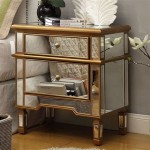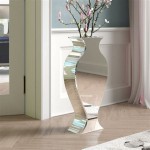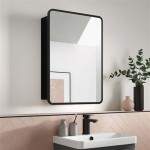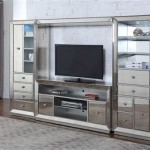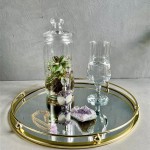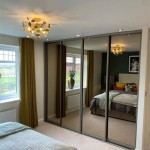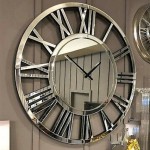How Much Does It Cost To Frame A Bathroom Mirror?
Framing a bathroom mirror offers a significant aesthetic upgrade, transforming a plain surface into a focal point of the room. However, understanding the costs associated with this project is crucial for budgeting and making informed decisions. The price to frame a bathroom mirror is influenced by a variety of factors, including the size of the mirror, the materials used for the frame, the complexity of the design, and whether you opt for a DIY approach or professional installation. This article provides a detailed breakdown of these cost-determining elements.
The initial aspect to consider is the scope of the project. Are you simply adding a frame to an existing, already-mounted mirror, or are you starting from scratch with a bare mirror and needing to handle mounting as well? This greatly impacts the labor component of the overall cost. Furthermore, the choice of materials for the frame itself will have a significant impact on the price. Wood frames, metal frames, and even tiled frames all come with different material costs and labor requirements. The complexity of the frame design, from simple, minimalist styles to ornate, decorative designs, will also influence the cost.
Before diving into specifics, it's important to establish a general price range. Framing a bathroom mirror can cost anywhere from $50 to $1,000 or more, depending on the factors mentioned above. A simple DIY project using inexpensive materials might fall on the lower end of the spectrum, while a custom-designed frame made from high-end materials and professionally installed can easily reach the higher end. This article will help you estimate where your particular project might fall within this range by examining the various cost components in detail.
Key Point 1: Material Costs for Mirror Frames
The materials used to construct the frame are perhaps the most significant factor influencing the overall cost. The choice of material should align with the overall aesthetic of the bathroom, as well as the budget and the level of humidity and moisture present in the space. Each material has its own set of advantages and disadvantages in terms of cost, durability, and maintenance.
Wood Frames: Wood is a classic and versatile choice for framing mirrors. It offers a wide range of styles and finishes, from rustic to contemporary. The cost of wood frames varies greatly depending on the type of wood used. Softwoods like pine are generally less expensive than hardwoods like oak, maple, or walnut. Furthermore, the complexity of the wood detailing, such as carvings or moldings, will also increase the price. Wood frames typically require sealing and finishing to protect them from moisture and prevent warping or decay. Expect to pay anywhere from $10 to $50 per linear foot for wood framing materials, depending on the wood species and design complexity. This price does not include the cost of stain, paint, sealant, or any decorative hardware.
Metal Frames: Metal frames offer a sleek, modern look and are generally more resistant to moisture than wood frames. Aluminum and stainless steel are popular choices for bathroom mirror frames due to their durability and resistance to rust. Metal frames can be either purchased pre-fabricated or custom-made. Custom metal frames can be more expensive due to the specialized fabrication required. The cost of metal frames can range from $20 to $75 per linear foot, depending on the type of metal and the complexity of the design. Powder coating or other finishes to protect the metal and enhance its appearance can add to the overall cost.
Tile Frames: For a more integrated and customized look, consider using tiles to frame the bathroom mirror. Tile frames can be created using ceramic, porcelain, glass, or even natural stone tiles. The cost of tile frames will depend on the type of tile used, the size of the tiles, and the complexity of the design. Tile mosaics or intricate patterns will require more labor and potentially more expensive materials. Expect to pay anywhere from $5 to $50 per square foot for the tiles themselves, plus the cost of grout, thin-set mortar, and other installation materials. Labor costs for tile installation can also be significant, especially for complex designs.
Other Materials: While wood, metal, and tile are the most common choices for mirror frames, other materials can also be used. These include PVC trim, which is a moisture-resistant alternative to wood, and even repurposed materials like reclaimed wood or metal. The cost of these alternative materials can vary widely depending on the source and the quality of the materials. Consider the long-term durability and aesthetic appeal of these materials before making a selection.
Key Point 2: DIY vs. Professional Installation Costs
Another major cost factor is whether you choose to frame the mirror yourself or hire a professional. A DIY approach can save money on labor costs, but it requires a certain level of skill and experience with carpentry, tiling, or metalworking. Professional installation ensures a high-quality, durable result but will add to the overall cost.
DIY Framing: If you have experience with basic carpentry and are comfortable using tools like saws, sanders, and drills, you may be able to frame the mirror yourself. The cost of a DIY project will primarily be the cost of the materials. However, it's crucial to factor in the cost of any tools you may need to purchase or rent, as well as the cost of any mistakes you might make that require you to re-purchase materials. Be sure to carefully measure the mirror and plan the design before cutting any materials. Watch tutorials and consult with experienced DIYers if you are unsure about any aspect of the process. The time investment for a DIY project can also be significant, especially if you are new to this type of work. It's crucial to realistically assess your skills and time commitment before undertaking a DIY framing project.
Professional Installation: Hiring a professional contractor or carpenter to frame the mirror will add to the overall cost but will ensure a high-quality, durable result. Professional installers have the experience and expertise to handle complex designs and ensure that the frame is properly installed and secured. The cost of professional installation will vary depending on the complexity of the project, the location, and the experience of the installer. Expect to pay anywhere from $50 to $150 per hour for labor, or a fixed price based on the scope of the project. Be sure to get multiple quotes from different contractors before making a decision. Ask for references and check online reviews to ensure that the contractor has a good reputation. Clarify the scope of work and the materials to be used in writing to avoid any misunderstandings. In addition, ensure that the contractor is properly licensed and insured to protect yourself from liability in case of accidents or damages.
Combination Approach: It's also possible to take a combination approach, where you handle some aspects of the project yourself and hire a professional for others. For example, you might purchase a pre-fabricated frame and then hire a professional to install it. Or you might build the frame yourself and then hire a professional to finish it with paint or stain. This approach can help you save money while still ensuring a high-quality result.
Key Point 3: Additional Cost Considerations
Beyond the materials and labor, several other factors can influence the overall cost of framing a bathroom mirror. These include the size and shape of the mirror, the complexity of the design, and any necessary modifications to the surrounding wall or fixtures.
Mirror Size and Shape: The size of the mirror is a direct determinant of the amount of materials needed for the frame. Larger mirrors will require more material, increasing the overall cost. Irregularly shaped mirrors, such as oval or arched mirrors, will require more complex cuts and potentially more material waste, further increasing the cost. Custom frames for irregularly shaped mirrors will almost always require professional fabrication.
Design Complexity: Simple, minimalist frame designs are generally less expensive than ornate, decorative designs. Intricate carvings, moldings, or inlays will require more skilled labor and potentially more specialized materials, increasing the cost. The complexity of the frame design should be in line with the overall aesthetic of the bathroom and the budget. Consider simplifying the design if you are on a tight budget.
Wall Modifications and Fixture Adjustments: In some cases, framing a bathroom mirror may require modifications to the surrounding wall or adjustments to existing fixtures. For example, if the mirror is recessed into the wall, you may need to trim the wall to accommodate the frame. Or, if there are light fixtures or outlets located near the mirror, you may need to relocate them to allow for the frame. These modifications can add to the overall cost of the project and may require the services of a professional electrician or plumber. It is best to assess the existing conditions and potential modifications before beginning the project to avoid unexpected costs.
Permits and Inspections: Depending on your location and the scope of the project, you may need to obtain permits or inspections. This is especially true if you are making significant modifications to the wall or electrical system. Check with your local building department to determine what permits and inspections are required for your project. The cost of permits and inspections can vary depending on the location and the complexity of the project.
Disposal Costs: If you are removing an old mirror or frame, you will need to dispose of it properly. Some municipalities offer free or low-cost disposal services, while others may charge a fee. Consider the disposal costs when budgeting for your project.
Ultimately, determining the cost to frame a bathroom mirror requires careful consideration of all these factors. Whether you choose a DIY approach or hire a professional, understanding the material costs, labor costs, and potential additional costs will allow you to budget effectively and achieve your desired aesthetic within your financial constraints. Thorough planning and research are crucial for a successful and cost-effective bathroom mirror framing project.

Diy Bathroom Mirror Frame For Under 10 O Hayley Blog

Fixr Com Bathroom Mirror Installation Cost Costs

Diy Bathroom Mirror Frame For Under 10 O Hayley Blog

How To Frame Out That Builder Basic Bathroom Mirror For 20 Or Less

How To Frame Out That Builder Basic Bathroom Mirror For 20 Or Less

Diy Bathroom Mirror Frame For Under 10 O Hayley Blog

Bathroom Mirror Frames 2 Easy To Install Sources A Diy Tutorial Retro Renovation

How To Frame Out That Builder Basic Bathroom Mirror For 20 Or Less

How To Frame Out That Builder Basic Bathroom Mirror For 20 Or Less

Diy Bathroom Mirror Frame Without Removing Clips Her Happy Home

